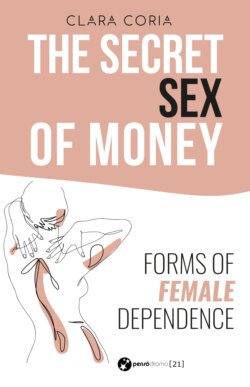Читать книгу The Secret Sex of Money - Clara Coria - Страница 8
На сайте Литреса книга снята с продажи.
Introduction Origins
ОглавлениеBack in 1981, I discovered impediments that limited the way I handled money. Concerned and intrigued, I resolved to study this phenomenon by delving into myself and other women. I was particularly surprised because my economic independence, which began in adolescence, did not explain my limited autonomy. Throughout my life, I have made decisions, faced new situations and sought new horizons contrary to established patterns. I was, after all, what is commonly known as an independent woman. Yet not in my relationship with money.
My heart would race unexpectedly whenever I had to settle money matters. Though I was able to conceal my inner turmoil in such moments, it left me drained.
Pursuing a debt, discussing the terms of a contract, making an important purchase, justifying my fees, reaching agreements on financial responsibilities with my spouse, clarifying what I considered “mine” and “ours”, establishing economic criteria for my children, and all those other “trifles” of daily life did not arise spontaneously.
Far from it, I was beset by unwelcome stomachaches, ethical concerns (“money is demeaning”), aesthetic discomfort (“it’s dirty and ugly”), and indefinite deferrals (“I’ll deal with it tomorrow”).
They either paralyzed me or forced me to adopt vindictive stances and/or one of “what do I care”.
Clearly, I was an independent woman, and yet I was not.
I had no alternative but to face facts: in financial matters things are neither what they seem nor what many people believe them to be.
Looking around me, I was shocked and relieved in equal measure to learn I was not alone.
I was one of many women, economically independent or not, living a life weighed down by internal, nameless struggles, which I believed no one else had.
And this is how it all began.
I decided to conduct my analysis in a theoretical framework, which would allow me to reflect on, compare and formulate a hypothesis to clear up this mystery of independence without autonomy.1
I chose consciousness-raising groups2 as my work methodology, making some changes relevant to the subject and to the fact that the groups comprised only women.
I developed several hypotheses and drafted papers that were published in Argentina and abroad on the problem I initially called “women and money”.
Finally, as I had suspected I would do from the outset, I conducted some consciousness-raising groups made up only of men in order to add some of the vicissitudes men must also encounter to this complex puzzle of dealing with money in our culture. And besides, as “everyone knows” (and if they don’t this is their chance to find out) what affects one half of humanity necessarily affects the other half.3
Finally, I embarked on the troubling and exciting task of writing and repeatedly correcting the papers and notes I had accumulated over several years with the aim of making them available to everyone in book form.
